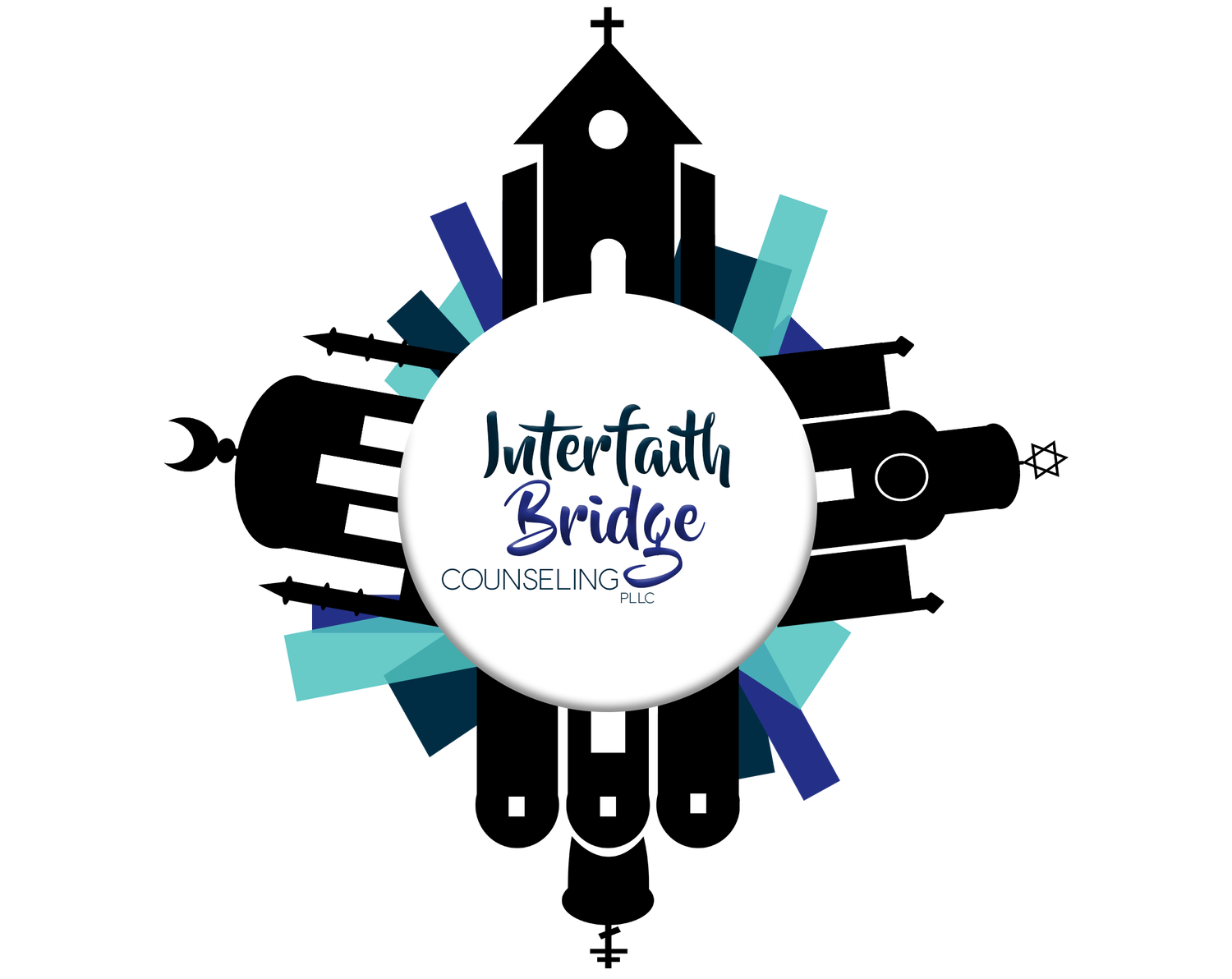
Identity Exploration Therapy for Teens & Young Adults in Denver
As a teen or young adult, you’re overwhelmed with change. Whether you’re slammed with hormones, social pressures, academic and career responsibilities, or extracurricular activities, your life is constantly, rapidly changing. Maybe you don’t feel like your old self. Maybe you’re questioning who you really are–maybe you feel lost, confused, or even angry. Or maybe you’re excited and feeling curious, ready to dive in deeper to discover your true identity - who you are, who you want to be, and the type of community to support you through both.
Whatever the case, we’re here for you. Identity crisis is normal and developmentally important for young people. Questioning and forming our own identities help us lay the foundation to establish our values, find our place in our communities, and ultimately thrive throughout our lives.
WhaT is a Teen & Young Adult Identity Crisis?
As mentioned above, adolescence and emerging adulthood are crucial stages in everyone's life, marked by intense physical, emotional, and cognitive changes. During this time, teens and young adults begin to question their beliefs, values, and aspirations, leading to a search for a clearer understanding of who they truly are. We commonly refer to this experience as an identity crisis.
At this age, societal expectations can also play a significant role in causing adolescent identity crises as well as young adult identity crises. So often we're imposed with predetermined norms and expectations regarding our behavior, career choices, and roles based on gender, culture, or social class. These expectations (whether they come from our family, other loved ones, peers, or even social media) can make us feel pressured to conform, leading us to feel dissatisfied at best, and completely disconnected and broken at worst. It’s no wonder we end up questioning our identities.
Why is Identity Crisis & Exploration Therapy Important?
Research has shown that if teens and young adults are not given space or resources to explore their identities, they are much more likely to struggle with anxiety, depression, and low self-esteem. In other words, if young people don’t establish a solid identity, they are more likely to struggle in and throughout their adult lives.
Identity Crisis & Exploration therapy can help teens and young adults establish what is most important to them, physically, mentally, and emotionally. When we are more in tune with our authentic selves, we can form better relationships with ourselves and others, and live a life of purpose, success, and autonomy.

Benefits of Beginning Teen & Young Adult Identity Crisis & Exploration Therapy
-
![[Image] Teal scribble above words "Relieve Stress."](https://images.squarespace-cdn.com/content/v1/63d95f727c30a3483f4424e4/30eab524-1e80-4758-88db-7f99c0541165/Untitled+%2811+%C3%97+11+in%29.png)
Relieve stress
-
![[Image] Teal scribble above words "Establish Values."](https://images.squarespace-cdn.com/content/v1/63d95f727c30a3483f4424e4/30eab524-1e80-4758-88db-7f99c0541165/Untitled+%2811+%C3%97+11+in%29.png)
Establish Values
-
![[Image] Teal scribble above words "Form Supportive Relationships."](https://images.squarespace-cdn.com/content/v1/63d95f727c30a3483f4424e4/30eab524-1e80-4758-88db-7f99c0541165/Untitled+%2811+%C3%97+11+in%29.png)
Form Supportive Relationships
-
![[Image] Teal scribble above words "Live a More Authentic Live."](https://images.squarespace-cdn.com/content/v1/63d95f727c30a3483f4424e4/30eab524-1e80-4758-88db-7f99c0541165/Untitled+%2811+%C3%97+11+in%29.png)
Live a More Authentic Life
Symptoms of an Identity Crisis in Teens & Young Adults
“How do I know my teen is struggling with an identity crisis and not just questioning their gender?” A parent might ask.
A college student might wonder, “What if I’m just struggling with my religious upbringing?”
It’s important to note that identity crises can look different for everyone and impact different areas of our lives. For example, some young people may struggle with their gender or sexual identity, cultural, ethnic, religious, or racial identity, existential identity, social identity, family identity, or professional identity. While everyone is unique in the way they may show their distress, the fundamental struggle is the same: in some way, we are struggling to find our sense of self.
We understand that it’s helpful to know a few common symptoms of identity crisis in young people so that we can help ourselves, loved ones, and children. Common signs of identity crisis may include:
Isolation: Struggling with your identity may cause you to withdraw from friends, family and peers. You may avoid social activities because you may not feel like you “fit in” any longer, or that you no longer connect with the people you used to.
Excessive Risk-Raking: What happens when you question previous values and boundaries? You might start to take risks. Risks might include unhealthy physical or emotional injury, sexual activities, compulsive lying, or other activities that might be deemed dangerous.
Fluctuations in Self-Esteem: One minute you may feel on top of the world and the next you may be flooded with self-doubt. An identity crisis can leave many young people feeling lost, which can also result in putting themselves down or putting others down.
Strained or Altered Relationships: As teens or young adults struggle with their sense of self, relationships with family, friends, peers, and coworkers may become tumultuous. You may find yourself jumping from one friend group to another, or seeking outside relationships when you previously were content.

Common Types of Identity Crises We Work With:
-
![[Image] Teal scribble above words "Social Anxiety."](https://images.squarespace-cdn.com/content/v1/63d95f727c30a3483f4424e4/30eab524-1e80-4758-88db-7f99c0541165/Untitled+%2811+%C3%97+11+in%29.png)
Gender Identity
If you feel a deep sense of discomfort or disconnect with your assigned gender at birth and are questioning societal norms about gender and sexuality, you may be experiencing a gender identity crisis. Gender identity crises can include gender dysphoria, but can also include general questioning and exploration of masculine, feminine, and non-binary qualities.
-
![[Image] Teal scribble above words "Cultural & Spiritual Identity."](https://images.squarespace-cdn.com/content/v1/63d95f727c30a3483f4424e4/30eab524-1e80-4758-88db-7f99c0541165/Untitled+%2811+%C3%97+11+in%29.png)
Cultural & Spiritual Identity
As we become more autonomous, we often start to question the culture, religion, or racial identities we grew up with. Discrimination, biases, and societal pressures may make teens and young adults question how they identify or feel about themselves. You may start exploring new communities, religions, or cultural practices as you strive to find what identity resonates most with you
-
![[Image] Teal scribble above words "Existential Identity."](https://images.squarespace-cdn.com/content/v1/63d95f727c30a3483f4424e4/30eab524-1e80-4758-88db-7f99c0541165/Untitled+%2811+%C3%97+11+in%29.png)
Existential Identity
If you find yourself questioning the meaning and purpose of life itself, you may be experiencing an existential identity crisis. You may think about your mortality, struggle with finding meaning in your day-to-day life, feel “stuck,” and generally feel alone and lost. The transition from childhood to adulthood is huge, so know that it’s normal to experience these kinds of thoughts and feelings.
-
![[Image] Teal scribble above words "Relationship Identity."](https://images.squarespace-cdn.com/content/v1/63d95f727c30a3483f4424e4/30eab524-1e80-4758-88db-7f99c0541165/Untitled+%2811+%C3%97+11+in%29.png)
Relationship Identity
Relationships can feel volatile, especially as an adolescent or young adult. We may question our identity or role in our families, social circles, or romantic relationships, leading us to ask questions like: Do my values match my family’s? Do I still love my partner, or have my interests changed? Do I really enjoy being with my friends, or am I just telling myself that?
-
![[Image] Teal scribble above words "Career Identity."](https://images.squarespace-cdn.com/content/v1/63d95f727c30a3483f4424e4/30eab524-1e80-4758-88db-7f99c0541165/Untitled+%2811+%C3%97+11+in%29.png)
Career Identity
Technological advancements, education accessibility, life changes, disabilities and so much more can make us question our career identity, or otherwise how we see ourselves professionally. Whether you’ve just started college, or have spent years in the same job, you may be experiencing a career identity crisis if you question whether you feel fulfilled, what is expected of you, and if you’ve made the “right” career choice.
Find a Colorado Identity Crisis & Exploration Therapist
ACCEPTING NEW CLIENTS
ACCEPTING NEW CLIENTS
Trenton Foster
Professional Counseling Intern
She/Her
ACCEPTING NEW CLIENTS
ACCEPTING NEW CLIENTS
Gabby Gomez
Social Work Intern
She/Her
ACCEPTING NEW CLIENTS
ACCEPTING NEW CLIENTS
Courtney Romero
Professional Counseling Intern
They/She
Rani Ellison, LPCC
Clinician
They/She
Lena McCain MA, LPC
Founder & Clinical Director
She/Her
Pricing: We operate on a pay-what-you-can scale between $60 - $140 per session for individual counseling services at Interfaith Bridge Counseling, PLLC. For insurance, we accept all RAEs of Medicaid and CHP+. For private insurance, we offer superbills for out of network insurances.
Outside our age range of 10-35 years old, but still want to work with us? Don’t worry! Just reach out and let us know.

![[Image] Black teen person biting lip with a questioning look on face. Denver Tween Therapy for Identity Crisis..](https://images.squarespace-cdn.com/content/v1/63d95f727c30a3483f4424e4/3f20c961-c82b-41d7-b8e0-baf6c5b6ceb0/Tween-Identity-Questioning-Therapy-Denver-Colorado-Interfaith-Bridge-Counseling.png)
![[Image] Hispanic young adult woman hand scratching head in black shirt. Denver Young Adult and Teen Therapy for Identity Crisis.](https://images.squarespace-cdn.com/content/v1/63d95f727c30a3483f4424e4/835483df-bb31-4134-a994-61da179b5876/Young-Adult-Identity-Crisis-Therapy-Interfaith-Bridge-Counseling-Denver-CO.png)
![[Image] Black young adult male in wheelchair with glasses and hand on face, looking perplexed. Therapy for Identity Crisis in Denver for teens and young adults.](https://images.squarespace-cdn.com/content/v1/63d95f727c30a3483f4424e4/f3810780-259d-4bd5-98bb-4f5b6b2065e9/Young-Adult-Cultural-Identity-Crisis-Therapy-Denver-Colorado-Interfaith-Bridge-Counseling.jpg)
![[Image] BIPOC female teen wearing a hijab scratching head and feeling confused. Identity Exploration for teens and young adults in Denver.](https://images.squarespace-cdn.com/content/v1/63d95f727c30a3483f4424e4/45e99c89-cb97-4680-bfd8-d49883f92e63/Teen-Identity-Crisis-Therapy-Interfaith-Bridge-Counseling-Denver-Colorado.jpg)
![[Image] Queer biracial couple leaning on one another, staring forward. Denver Young Adult Therapy for Identity Exploration..](https://images.squarespace-cdn.com/content/v1/63d95f727c30a3483f4424e4/a7f636a4-dd8a-4abc-8900-2bf4392e19c4/Young-Adult-Identity-Exploration-Denver-Colorado-Interfaith-Bridge-Counseling.jpg)
![[Image] Caucasian teen male sitting with one knee up, staring off into the distance. Denver Teen Therapy for Identity Exploration.](https://images.squarespace-cdn.com/content/v1/63d95f727c30a3483f4424e4/53871b9b-aa9a-4fcc-9350-b71b466bb88f/Adolescent-Identity-Crisis-Therapy-Denver-CO.png)
![[Image] White adult woman laughing clutching her hands in front of an urban art wall, offering stress management therapy for tweens, teens, and young adults in Denver, Colorado](https://images.squarespace-cdn.com/content/v1/63d95f727c30a3483f4424e4/9e15039f-509a-4b7c-a9a3-7a65764b8400/Trenton-Foster-School-Avoidance-Therapy-Teen-Therapy-Denver-CO-Interfaith-Bridge-Counseling..png)
![[Image] Scribble picture of latinx woman smiling in front of a graffiti painted wall. Denver Teen Therapist.](https://images.squarespace-cdn.com/content/v1/63d95f727c30a3483f4424e4/b5211369-244b-4a4c-a57d-02d1950cb5fb/Gabby-Gomez-Stress-Management-Therapy-Denver-CO-Interfaith-Bridge-Counseling.png)

![[Image] Scribble picture of asian non-binary person smiling in front of a graffiti painted wall. Denver Teen Therapist.](https://images.squarespace-cdn.com/content/v1/63d95f727c30a3483f4424e4/8ab62aef-a2dd-4514-abed-a2a77fff4a8f/Rani-Ellison-Stress-Management-Therapy-Denver-CO-Interfaith-Bridge-Counseling+%281%29.png)
![[Image] Scribble picture of Caucasian woman with hands on her head in front of a graffiti painted wall. Denver Teen Therapist](https://images.squarespace-cdn.com/content/v1/63d95f727c30a3483f4424e4/6b1ef401-b6f4-4af2-92f6-daeaf3cca61b/Lena-McCain-LPC-Clinical-Director-Colorado-Interfaith-Bridge-Counseling.jpg)